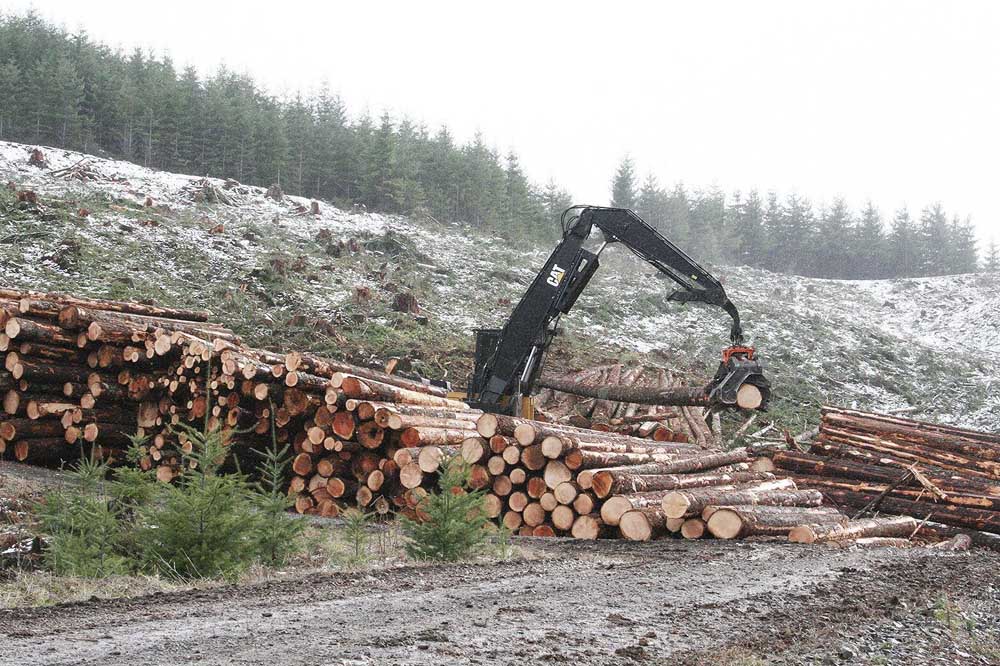Counties could reclaim forestland from state under bill
Published 10:37 pm Thursday, March 2, 2023

- Some rural state lawmakers want to give counties the option to reclaim forestlands they donated to the state government decades ago.
SALEM — County governments could reclaim forestlands they donated to the state decades ago under a bill that environmental groups fear will weaken water and wildlife protections.
Opponents claim Senate Bill 795, which applies to more than 700,000 acres in 15 counties — including Clatsop County — is out of step with a landmark legal precedent that recently affirmed the state’s authority over forestry decisions.
“It attempts to undermine decades of work to balance state forests for the greatest permanent value of the people of Oregon and to relitigate the Linn County lawsuit,” said Michael Lang, state policy program manager for the Wild Salmon Center environmental group.
In the 1930s and 1940s, county governments turned over forestlands to the state government to manage in return for a share of the timber revenues.
Seven years ago, Linn County filed a class-action lawsuit seeking more than $1 billion in lost timber revenues on their behalf, alleging that state forest managers had improperly emphasized environmental and recreational concerns over timber production.
In 2019, a jury agreed the state government had violated contracts with the counties to maximize logging revenues, but that decision was overturned by the Oregon Court of Appeals last year.
The appellate court determined the state government hadn’t made an “immutable promise” to prioritize timber harvests. The state’s Supreme Court decided against reviewing the ruling.
Proponents of SB 795 argue that affected counties should now be allowed to decide whether they want to retake the donated forestlands, since state forest managers changed the terms of the original understanding 25 years ago.
The bill would strengthen local control of natural resources by county representatives who are most familiar with the goals of their constituents, said state Sen. Suzanne Weber, R-Tillamook, during a recent legislative hearing.
“Local elected officials are the closest ones to the voters,” Weber said. “They know how to manage the forests better than anyone else.”
The Clatsop County Board of Commissioners voted 3 to 2 in 2017 to opt out of the timber lawsuit against the state. But the county commission has moved in a more conservative direction after recent elections.
Four of the five county commissioners — chairman Mark Kujala, Courtney Bangs, John Toyooka and Lianne Thompson — signed a letter in February to the Senate committee reviewing SB 795 to support the legislation. Commissioner Pamela Wev declined to sign the letter.
“The Department of Forestry treatment of local partners is unfortunate and directly contributes to inequitable and unacceptable outcomes for rural communities. This should be a concern for anyone who loves this great state,” the letter said.
“We are confident we can simultaneously protect the environment and support the essential underpinnings of a healthy and sustainable rural community — family wage jobs, quality schools, accessible health care, public safety and affordable housing.”
In 1998, the state’s Board of Forestry adopted a rule that emphasized water quality, wildlife habitat and recreational values, which had the effect of limiting timber revenues to county governments.
Supporters of SB 795 say counties should be able to choose whether they agree with that shift in direction.
“In my opinion, at that point the state decided that it knew better than the counties did, to the extreme detriment of the counties,” said Rep. Shelly Boshart Davis, R-Albany, during a recent legislative hearing.
By passing SB 795, lawmakers would demonstrate they’re listening to rural residents who feel unheard at the Capitol, she said. Meanwhile, environmental restrictions would still apply to any forestlands reclaimed by the counties.
“Managing forests for timber does not mean abandoning habitat or water quality or prohibiting public access,” Boshart Davis said. “There are strong federal and state laws in place to protect that.”
Under the bill, the counties would be responsible for paying the administrative costs of conveying the forestlands to their ownership, so it wouldn’t be financially burdensome for the state, according to supporters.
Apart from letting counties generate more revenue to pay for local services, the bill would improve their resilience to wildfire by reducing overstocked forest stands, said Roger Nyquist, chair of the Linn County Board of Commissioners.
“Forests grow at between 2 to 3% per year. If you’re harvesting less than that, you’re just increasing the fuel loads,” he said.
The bill’s opponents counter that counties often lack the forestry expertise of managers employed by the state government and aren’t necessarily accepting of consensus science on such issues as climate change.
Decisions about state forestlands are currently made with consideration for all Oregon residents, but SB 795 would threaten that collective benefit, said Alan Journet, co-facilitator of the Southern Oregon Climate Action Now nonprofit group.
“Just as the federal lands belong to the people of the United States and not just the residents of a single state, so state lands belong to the people of the state and not just the residents of a single county,” Journet said.
Rather than allow a “county takeover of Oregon state forests” to increase logging, lawmakers should supplement timber revenues to help counties pay for local services, the bill’s opponents say.
“More diversified funding streams must be used to augment local budgets,” said Kathleen Sullivan, a former Clatsop County commissioner who voted to opt out of the timber lawsuit in 2017. “Let’s move on and find realistic and pragmatic solutions.”





